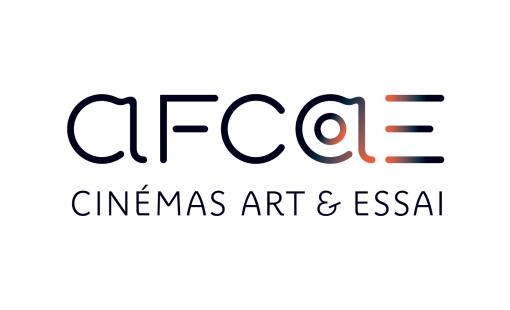Open letter to Alfonso Cuaron, Joel and Ethan Coen
(version anglaise de la tribune de l'AFCAE parue dans Le Monde du samedi 23 février 2019 ici)
Dear Joel, Ethan and Alfonso,
Blood Simple, Fargo, O Brother, Where Art Thou ?, No Country for Old Men, True Grit and many others when it comes to Ethan and Joel ; Children of Men and then Gravity in Alfonso’s case. We have seen all your films. We waited for them as impatiently as our audiences. They were encounters with auteurs, directed by directors we loved, admired and defended. We have seen and screened all your films. All of them except the last one : Roma in the case of Alfonso Cuarón and…, what is the title again, oh, yes, The Ballad of Buster Scruggs by Ethan and Joel Coen. We showcased your work on the big screen and presented it to an audience of aficionados. What happened to this long relationship based on trust, and why did it end so suddenly, so abruptly ?
“Times change, that’s all !” That is what you keep repeating in several interviews. Yes, but the question is, in what way does it change and why ? For the sake of the broadcaster ? Of the auteurs ? Of the audience ? Of the work of art itself ? “One has to adapt to the evolution of the audience” according to Joel. There we touch on one of those typically flawed figures of speech that some of the characters in your films would not have disowned. Yesterday your films could have been viewed by choice and consecutively on the silver screen in a cinema, on VOD, DVD, on a small screen, a computer or a mobile phone, pay television or free-to-air broadcasting, or even on an online platform. The audience could choose the place, the platform, the format, or if to be a subscriber or not. The spectator had to wait to access every window consecutively.
Alfonso, you rejoice, saying that thanks to Netflix your Mexican relatives can watch Roma even if there are no theatres nearby. But it was already the case for your other films. These could be seen on VOD or on television! In the case of Netflix (and we’re getting to it now), it is not you who adapts to the audience, but the opposite : the audience must adapt to the choice that you have made : to entrust your latest work of art exclusively and on the long-term to a specific platform. The choice your audience is left with is : either getting a Netflix subscription and seeing your film on a small screen or not seeing the film at all. That is not a choice, that is an obligation, at least for your fans. This obligation is not temporary, it is a long-term obligation, something that only a few put down in black and white. It is the privatisation of a work of art.
Times change and so the audience (as the auteurs ?) must adapt to the commercial strategies of the new global broadcasters. But if we look at film history, we can see that all the evolutions, adaptations, mutations of cinema have been done in the name of concrete, technical, objective progress: the appearance of sound, of colour, of cinemascope, of Dolby and comfortable cinemas. Every time it was a way of improving the quality of the show and emphasising the value of the works, even though the broadcasting of the work started happening successively on an ever-multiplying number of platforms. When we look at the long credits at the end of your films we are impressed by the number of actors and technicians who have done their best to set up the lights, the framing, the scenery, the costumes, the sound, the editing, the mixing and the calibration with utmost care.
From this point of view, choosing to offer the exclusive long-term showcasing of a film made with cinematographic ambition to a paying platform is not progress, but regression. Making this choice is a double renunciation. You give up on the best possible valorisation and technical exhibition of your film on a big screen and with the aid of a sound system that conveys the subtleties and details of your work. You also give up on the collective discovery of your work of art. You give up on the idea of making your film a public show. And that is not something to take lightly. Of course, nowadays, art films are predominantly seen on other platforms, not just the big screen. But is that a valid reason to give up on it completely ? Would a composer, a musician, a singer give up on concerts saying that most people listen to their work on Youtube or another platform ?
The real reason for your film only being available on Netflix is commercial and financial. It is not a question of knowing who will watch your film and under what circumstances, but how it will be financed and how much it will yield (in publicity and subscriptions). Netflix is a global business enterprise that has understood that it needed to have an exclusive offer of films to get more subscribers. It needed an image and names. Exclusivity and prestige. The Coen brothers, a Golden Lion and why not an Oscar ? An artistic glaze and global publicity; that is what you give Netflix, all the rest is secondary. By the way, you must have observed that unlike in the case of Susanne Bier’s movie (45 million viewings across the world according to the platform), Netflix does not communicate about the numbers of viewers of your films. How many subscribers watched the Golden Lion winner, a beautiful black and white Mexican film without any famous actor ?
And yet, should we not rejoice that a new powerful operator invests in quality cinema ? Yes, we should, if it does so on several terms; terms that many producers and broadcasters respect (especially in France). We cannot say that about Netflix. To conclude, let us ask a few simple questions. Behind the fact that Netflix has bought a black and white Mexican film, is there a sign of a strategy choosing to defend diversity, to go beyond the dominance of Anglo-Saxon productions ? Will Netflix (just as other operators) consider respecting the fiscal rules of the countries in which it broadcasts to contribute to the common life of a territory from which it profits? Would Netflix potentially produce or buy critical films from Iran, China, Russia, Brazil, Saudi Arabia or Turkey ? If Netflix is so eager to finance important auteur films, will it also show as much interest to discover new talents ? Will it even continue to finance the established talents when it reaches the desired number of subscriptions ? Was Netflix’s contribution to the production and distribution really vital or is it a deliberate, assumed choice on your behalf ?
In any case, if you are “only” filmmakers (for the audience, the media, the elected politicians) it is good to remember that the development of a global operator, whose subscribers have reached hundreds of millions is anything but neutral. So, your choice of entrusting your film to Netflix is not only a decision to give up on the possibility to show your film in cinemas where they can be watched collectively, but also giving your name to endorse a powerful operator who profits from a system, but who does not abide by it if it is against his own interest. How can you play with someone who changes the rules of the game only for his own benefit ? By trying to make him respect the rules or by joining him ? To each his own answer.
Respectfully,
François Aymé
President


















